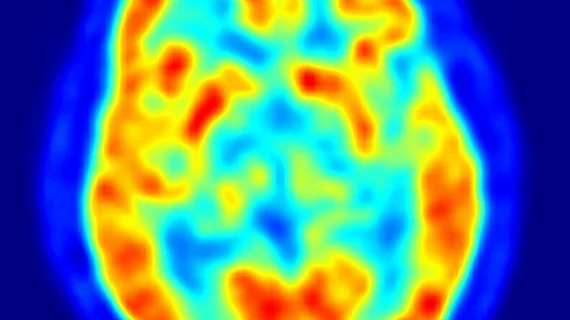New PET brain imaging paradigm shows smokers may have reduced neuroimmune function
Positron emission tomography (PET) brain imaging using a new [11C]PBR28 PET brain imaging paradigm yields preliminary evidence that tobacco smokers may have reduced neuroimmune function compared with non-smokers.
The research behind the finding, presented June 25 at the 2019 Annual Meeting of the Society of Nuclear Medicine and Molecular Imaging (SNMMI) by Ansel Hillmer, PhD, of Yale and colleagues was based on the premise that tobacco has complex effects on immune signaling.
While nicotine suppresses the immune system, Hillmer et al. acknowledged, other compounds in tobacco smoke cause inflammation. As impaired neuroimmune signaling may contribute to compulsive drug use, they surmised, a comparison of neuroimmune responses in tobacco smokers and non-smokers in keeping with the new brain imaging paradigm was warranted.
For the study, baseline PET scans were acquired in 16 smokers and 19 non-smokers. In accordance with the paradigm, a subset of eight smokers and nine non-smokers underwent a second PET scan three hours after lipopolysaccharide (LPS), a pro-inflammatory stimulus, had been administered.
No significant differences in subjects’ baseline scans were observed. However, the response to LPS in certain regions of the brain, including the striatum and cortex, was significantly lower in subjects who smoke than in subjects who do not smoke. The preliminary results of this ongoing study provide initial evidence of impaired neuroimmune function in tobacco smokers compared to non-smokers, as seen using the paradigm, the researchers said in a prepared statement.
“This work has important implications for tobacco smokers,” Hillmer noted. “There is broad interest in targeting neuroimmune mechanisms with therapeutics for substance use disorders, but most of the interest is in suppressing the brain’s immune system. Our preliminary work suggests that restoring the immune system may benefit tobacco smokers. Immune dysfunction is linked to cognitive dysfunction, which is also a typical complaint in smokers trying to quit.”
Hillmer added that the study findings to date point to an important new role for molecular imaging in clinical research studying the brain’s immune system. He said he and his colleagues hope to further utilize molecular imaging to explore how restoring the immune system may help smokers quit the habit by improving cognitive function.
